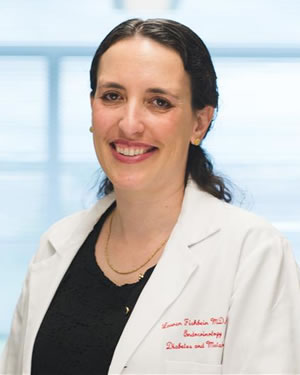Contact UCHealth

Make a Gift
Genetic Counseling for Hereditary Cancers
Evaluating family history for cancer risk
While most cancers occur by chance, it is estimated that 5-10% of cancer is inherited in families. Hereditary cancer occurs when an individual is born with a genetic change (often called a pathogenic variant or mutation) that increases the likelihood of developing certain types of cancer.
Cancer genetic counseling can help you learn about the impact your personal and family histories have on your chance of developing cancer. It can also help you understand your options for prevention, early detection, treatment, and the risk to other family members.
In order to accurately assess your cancer risk, we collect important information regarding the cancer history in you and your relatives. This involves obtaining an accurate family history regarding the occurrence of cancer(s) in you and your immediate and extended family – your children, siblings, parents, grandparents, aunts, uncles, and cousins on both sides. The type of cancer and the age of onset are extremely important in gathering this information.
While there are still unknown genetic factors that may increase the risk for cancer, significant advances have been made in identifying gene variants that increase a person’s risk of developing the disease. These variants are typically inherited in families and can be passed down from parent to child. Some common examples of inherited cancer conditions include:
- Hereditary Breast and Ovarian Cancer Syndrome (includes genes like BRCA, ATM, PALB2, CHEK2).
- Lynch syndrome.
- Cowden syndrome.
- Familial adenomatous polyposis (FAP).
- Hereditary Leukemia and Hematologic Malignancies.
- Li-Fraumeni syndrome.
- Multiple endocrine neoplasia.
- Von Hippel-Lindau syndrome.
Should I consider genetic counseling?
Some common reasons to consider genetic counseling and genetic testing include:
- You were diagnosed with breast cancer or colon cancer before age 50.
- You or a relative has had pancreas or ovarian cancer at any age.
- The same type of cancer is diagnosed in two or more relatives (especially if diagnosed under the age of 50).
- Two or more relatives diagnosed with related cancers, such as:
- Colon and Endometrial (uterus).
- Breast and Ovarian.
- Many relatives in your family have had cancer (especially if they were young at diagnosis).
- You or a relative has had more than one type of cancer.
- You or a relative has had a rare type of cancer.
- You or a relative has had multiple (more than 10) polyps of the colon.
An evaluation with a cancer genetic counselor could provide you with information about your own cancer risk and ways to reduce this risk. It will also help your doctor develop a screening plan unique to you.
Genetic counseling can also be helpful for your family members. They could learn who may be at an increased risk of developing cancer and might benefit from increased cancer screening and management.
Who are genetic counselors?
Genetic counselors are certified professionals who have specialized training in genetics and risk assessment. They help educate individuals so that informed decisions can be made about their genetic health. Genetic counselors can also provide guidance and support surrounding interpretation of genetic test results and discuss information about such things as:
- How inherited diseases and conditions might affect an individual or their families.
- How family and medical histories may impact the chance of disease occurrence or recurrence.
- Which genetic tests may or may not be right for them, and what those tests may or may not tell.
- How to make the most informed choices about healthcare conditions.
What is a personalized cancer risk assessment?
A risk assessment is a detailed conversation with a genetic counselor where you talk about the likelihood that the cancer in your family is inherited and the likelihood that you may develop cancer. The genetic counselor will ask you questions about your family ethnicity, health history, and your risk factors. If there are signs that hereditary cancer may run in your family, the genetic counselor will talk to you about genetic testing and what the results might mean for you and your family.
If you have a greater risk for cancer due to family history alone or due to a hereditary cancer syndrome, we will discuss the steps you can take to help reduce your risk. These recommendations may include more frequent cancer screenings, lifestyle changes or other steps you can take to lower your risk.
What is genetic testing for cancer risk?
Genetic testing involves looking at a person's genetic information (DNA) for changes associated with an increased risk of developing certain cancers. This testing may reveal whether the cancer risk in a family is passed through their genes (inherited). When possible, genetic testing should begin with a family member who has had cancer.
Genetic testing is a powerful tool and raises many important issues for individuals and their families. If genetic testing is indicated, a genetic counselor will tell you about the available tests and help you decide if testing would be useful to you. The testing process is different for every individual. By going over which tests are right for each person and taking the time to review and talk over the possible results, a genetic counselor helps patients to understand information, answers any questions, and spends time listening to a patient’s considerations and concerns related to genetic testing.
Together, your genetic counselor will work with you to determine if testing is right for you.
Benefits of genetic testing
Genetic testing can be beneficial for a number of reasons. If there is a personal history of cancer, genetic testing may explain what contributed to the disease. In individuals who have a family history of cancer, it may help them better understand what their cancer risks might be and what screening strategies are available to help lower the risk for cancer and/or detect the cancer at an earlier stage. Genetic testing can also impact treatment decisions. As hereditary cancer syndromes are typically inherited, testing can give families important information to help identify other family members who may also be at risk.
Is genetic counseling the same as genetic testing?
Genetic counseling is one piece of the genetic testing process. Information gathered during a genetic counseling visit determines if genetic testing may be helpful to you. A genetic counseling session may include:
- Obtaining a detailed family history.
- Performing a personalized cancer risk assessment.
- Reviewing the benefits and limitations of cancer genetic testing.
- Discussing recommendations for screening and prevention.
If you are interested in pursuing genetic testing, your genetic counselor will work with you to ensure the correct test is ordered based on your personal and family history, as well as the amount of information you are interested in learning. If you do not want to pursue testing, your genetic counselor will help you understand other options that may be available to support your overall health.
Will insurance pay for genetic counseling and testing?
Cancer genetic counseling is usually covered by your insurance if you have a referral from your primary care provider. As with any specialty appointment, co-pays are dependent on the type of insurance.
Genetic testing is covered by most insurance companies if certain criteria are met. Discussing insurance coverage is a component of genetic counseling.
How is my genetic information protected?
Legislation including the federal Genetic Information Nondiscrimination Act (GINA) of 2008 protect against discrimination based on genetic information by health insurance companies and employers. However, this law does not apply to life insurance, disability insurance, long-term care insurance, or the military. It also may not apply to some individuals who work for a very small business. If you are interested in more specific information, you can read more at https://www.genome.gov/about-genomics/policy-issues/Genetic-Discrimination.
Cancer care support information
Stories: Our Patients and Researchers
Education
In 2023 we held the Lynch Syndrome conference an educational event for patients, families, and providers. See all the sessions below.
Research Involving the Hereditary Cancer Program at the University of Colorado Cancer Center

Lindsay Brubaker, MD
Open Studies:
- NRG-CC008: A nonrandomized prospective clinical trial comparing the non-inferiority of salpingectomy to salpingo-oophorectomy to reduce the risk of ovarian cancer among BRCA1 carriers [SOROCk].

Lauren Fishbein, MD, PhD
Open Studies:
- Molecular Genetics Studies Inherited genetic variation and penetrance of Hereditary Paraganglioma-Pheochromocytoma Syndrome (R01 from NCI).
- Colorado Center for Personalized Medicine Biobank: Registry for those with Hereditary Paraganglioma-Pheochromocytoma susceptibility syndromes.
- Is there an association of Hereditary Paraganglioma-Pheochromocytoma and living at altitude?
- Genotype and phenotype association with susceptibility genes for Hereditary Paraganglioma-Pheochromocytoma.
- Studying environment modifiers for hereditary and sporadic Paraganglioma-Pheochromocytoma.
Published Studies:
- SDHB mutation carriers with malignant pheochromocytoma respond better to CVD. L Fishbein et al. Endocr Relat Cancer. 2017 Aug. https://pubmed.ncbi.nlm.nih.gov/28566531/
- Case of Metastatic Pheochromocytoma and Meningiomas in a Patient With Lynch Syndrome. Meryl D Colton et al. JCO Precis Oncol. 2022. https://pubmed.ncbi.nlm.nih.gov/35025617/
- Tumor detection rates in screening of individuals with SDHx-related hereditary paraganglioma-pheochromocytoma syndrome. Samantha E Greenberg et al. Genet Med. 2020 Dec. https://pubmed.ncbi.nlm.nih.gov/32741965/

Laura Graham, MD
Open Studies:
- Institutional PI for PROMISE: a real-world clinical-genomic database to address knowledge gaps in prostate cancer (PMID: 34363009). https://medicine.umich.edu/dept/intmed/divisions/hematology-oncology/clinical-research-programs/promise-consortium
- DNA Damaging Therapies in Patients with Prostate Cancer and Pathogenic Alterations in Homologous Recombination Repair Genes.
- Responses and Outcomes to Platinum-Containing Chemotherapy in Patients with Prostate Cancer with and without DNA Damage Repair Mutations.
- Inherited germline variants in urothelial cancer: a multi-center whole exome sequencing analysis.
Published Studies:
- Mismatch Repair Deficiency in Metastatic Prostate Cancer (PC): Response to PD-1 Blockade and Standard Therapies (PMID 32453797).
- Mismatch Repair Deficiency and Clinical Implications in Prostate Cancer (PMID 35358351).

Swati Patel, MD
Open Studies:
- NCI: Lynch Syndrome Vaccine trial NCT05419011.
- American Cancer Society: Prevalence and spectrum of hereditary cancer syndromes in those with Advanced colorectal polyps NCT04160832.
- American Cancer Society: Mobile app development for patients to help coordinate/navigate multi-cancer screening/surveillance: protocol under review.
- NCI: Five or Ten Year Colonoscopy for 1-2 Non-Advanced Adenomatous Polyps (FORTE) NCT05080673.
- PCORI: Colonoscopy vs. Stool-Based Testing for Older Adults With a History of Colon Polyps.
- VA: Colonoscopy Versus Fecal Immunochemical Test in Reducing Mortality From Colorectal Cancer (CONFIRM) NCT01239082.

Marie Wood, MD
Open Studies:
- Molecular Genetics Studies of Cancer Patients and Their Relatives. This study will evaluate adherence to screening in patients with genetic mutations in cancer associated genes and other high-risk groups.
- A212102: Blinded Reference Set for Multicancer Early Detection Blood Tests. This study is establishing a cohort of patients at diagnosis and prior to treatment.
- Alliance 211802: A randomized, double-blind, placebo controlled, multicenter, international Phase 3 study to determine the prevention effect of denosumab on breast Cancer in women carrying a BRCA1 germline Mutation (BRCA-P Study). This is a study for unaffected BRCA1 mutation carriers evaluating the effects of Denosumab for breast cancer prevention.
Published Studies:
- Randomized noninferiority trial of telephone versus in-person genetic counseling for hereditary breast and ovarian cancer PMID: 24449235.
- The Influence of Vitamin D on Mammographic Density: Results from CALGB 70806 (Alliance) a Randomized Clinical Trial PMID: 33849913.
- Quality of cancer family history and referral for genetic counseling and testing among oncology practices: a pilot test of quality measures as part of the American Society of Clinical Oncology Quality Oncology Practice Initiative PMID: 24493722.
Acknowledgements

Michelle Springer
Michelle Springer, MS, CGC, was nominated for The Heart of Genetic Counseling Award by Caley Kurchinski for helping her get genetically tested for potential breast cancer. “I’m now 35, and I have
known Michelle for more than 10 years. She continues to have a profound
impact on my life and that of my family,” says Kurchinski. “Michelle has
done so much for me, but most of all, at a time when I felt like I had
no options, Michelle gave me a world of possibilities — and for that I
am forever grateful.”

Caley Kurchinski
Latest News from the Cancer Center
Loading items....
.jpg?sfvrsn=89751cbb_1)
.jpg?sfvrsn=3f751cbb_2)
.jpg?sfvrsn=b2e21dbb_0)
.jpg?sfvrsn=13e21dbb_0)